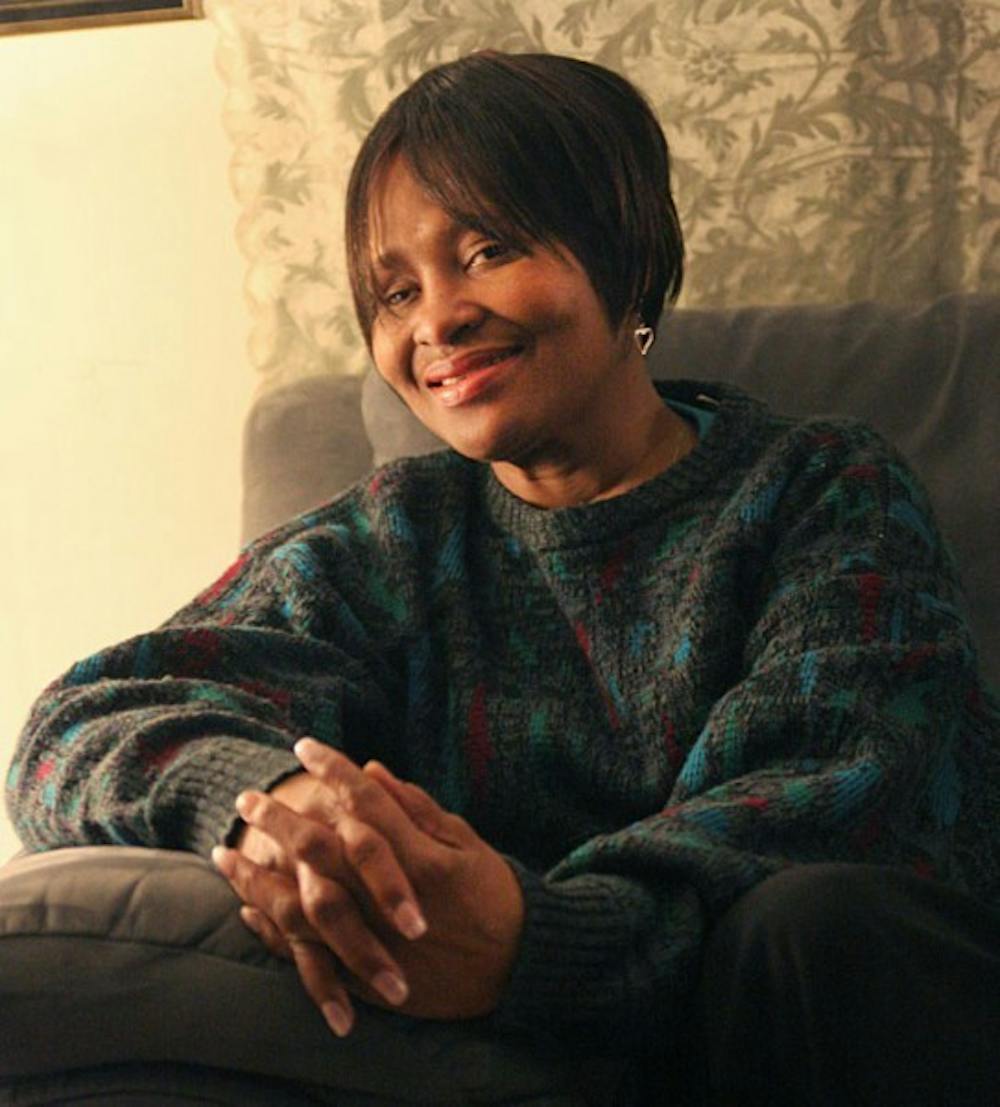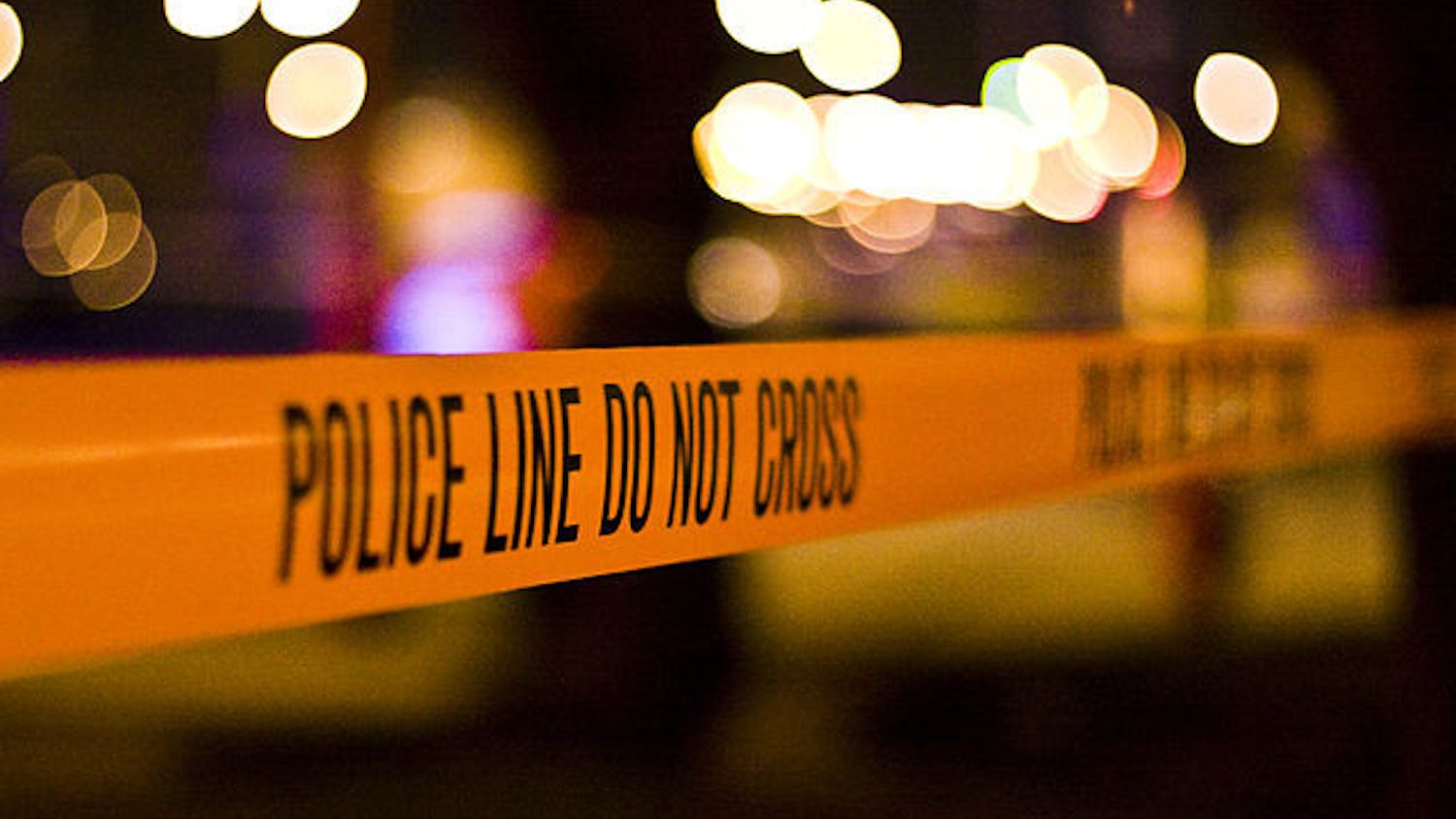When the neighbors heard her screaming, they thought it was just another stray cat.
It wasn’t until a woman walking her dog found her the next morning, run over, raped and left to rot they realized the cries of agony, the cries for mercy were from a woman clinging to life.
But as she lay dying in the street, Marvene Edwards still had eight lives left. This wasn’t the last time she would cheat death. This wasn’t the last time she would muster the unfathomable tenacity to keep going.
It was in the early hours of a Saturday morning in December, just before Edwards’ 32nd birthday in Princeton, Fla., a town with a population of about 11,000, where black and Hispanic residents outnumber their white counterparts by more than 4 to 1. It is a town where the percentage of people living below the poverty line in 2008 was nearly double Florida’s average. It is a town swept up and silenced by the sand and spice of neighboring Miami just 23 miles to the northeast.
She was wearing a white fur coat as she left a nightclub alone sometime after 2 a.m. and walked down a dirt road used more by sex-crazed adolescents looking for a place to park than for any kind of driving.
And it would be here on that dirt road, within an hour, where Edwards would be raped. And it would later be here on that tire-grooved gravel road where a .22-caliber bullet would both destroy and save her life as it barreled through her right eye, ricocheting through her right hand and out through the left side of her skull, creating a nickel-sized hole where now just a thin layer of skin and tightly braided black hair protect her brain.
POINT-BLANK
“It can’t end like this,” she thought. She had children she hadn’t said goodbye to. She had a family, a job and a life to live.
Flash.
Her head was shrouded in blood-bathed bandages, her right eye socket bare, her memory obliterated as she awoke in a hospital bed more than three days later.
“I knew I lost my eye, but I didn’t remember anything,” Edwards recalled.
Flash.
After she left the nightclub that Saturday morning, a van sped down the dirt road past Edwards, its tires crunching the pebbles embedded in the road. She thought nothing of it until the van raced back around so close to her it forced her into a nearby bush.
Two Hispanic men started yelling at the 31-year-old mother of four to get in the van.
“The first thought in my mind was, ‘He gon’ rape me,’” Edwards said. “And I wasn’t gon’ make a fuss because I wanted to get out alive.”
The men repeatedly clubbed Edwards on her upper lip with the butt of a gun, cracking teeth and slashing lips. They punched Edwards incessantly, demanding drug money she didn’t have while she begged for mercy and pleaded with the men they had the wrong woman.
“No one’s listening to you,” Edwards said. “All they care about is their merchandise.”
Then Edwards’ nightmare got worse as the men “snatched up” her clothes and raped her, fracturing her pelvis as they shoved anything they could find inside her.
“Every way you think I could be raped, they did to me,” Edwards said.
And these were the memories from a woman who doctors said would never amount to anything more than a vegetable if she ever awoke from her coma.
Edwards remembered the men finally giving up on her beaten, bruised and bloodied body after one of them stabbed her in the stomach. She remembered how the worst was yet to come.
“Once these people know you don’t have what they want and that you’ve seen all these things they’ve done, they can’t let you get out alive. They throw you up against a tree because they can’t allow blood to get all over their car,” Edwards said. “And then they shoot you.”
Flash.
A point-blank gunshot wound to the face was just the beginning for Edwards.
As she slept in her foreign hospital bed, Edwards’ blood-blotched hospital gauze covering her eye and skull had been laced with a poison so new, so deadly in 1987, it would later put Edwards on a death mission. Her life-saving, and potentially life-destructing, blood transfusion was unintentionally tainted with HIV.
Flash.
A WALKING MIRACLE
Edwards, now 54, walks out from her kitchen in east Gainesville as her white front door, marred black toward the bottom, budges and squeaks open after just the right amount of force. The smell of freshly fried catfish and hushpuppies wafts out into her front yard. She’s wearing a baby blue smock atop a long-sleeved white thermal, blue jeans so worn there’s no blue left, a silver necklace with the words “Friends Forever” etched on the heart-shaped pendant and a perfectly matched chocolate brown glass eye in her right eye socket.
“I’ve done crazy things with my eye,” Edwards said, as she slapped her knee and leaned back on her sofa, laughing.
And this is the woman who once just wanted to die more than anything in the world, joking about her glass eye as she leans over to allow a quick touch of the spongy part of her skull where a bullet once ravaged its way through.
“She’s a walking miracle,” said Quinton Williams, one of Edwards’ four children.
The fact that Williams is sitting on Edwards’ ordinary blue sofa in her ordinary living room, watching “Legion” on an ordinary Wednesday evening is a miracle in itself.
Because everything wasn’t always this funny. Everything wasn’t always this ordinary.
WAKING UP
Edwards awoke like a child in Jackson Memorial Hospital, forced to relearn how to walk and talk after waking up from being shot in the face.
But even living a child’s life was miraculous. Just by waking up, she had cheated death one more time. Her nine lives were dwindling quickly.
Doctors joked with Edwards, saying the only way she could have survived a bullet flying through her skull was if God moved her brain aside.
Edwards never thought of this as a joke. She knew this was nothing short of the truth.
“They called me ‘The Miracle Patient,’” Edwards said, as her right eye stared unwaveringly, artificially.
After relearning how to walk and talk during about six months of intensive rehabilitation, Edwards found herself fighting to get her own children back from protective services who had taken them while Edwards was in her comatose state.
“At the time I found out where they were, I had found out I was HIV-positive,” Edwards said. “I thought they were better off. I abandoned my children; I really did.”
And to cope, Edwards turned to drugs and transformed into Peaches, her cocaine-snorting, crack-smoking alter ego.
“The drugs, they hide the pain; they camouflage everything,” Edwards said. “It makes for an easy way out.”
And that was Edwards’ life for more than 10 years — drugs. This was Edwards’ escape from her reality as an HIV-positive, leper-like societal blister, she said. This was her escape from her inability to escape life.
“That was what life was about — the next hit,” Edwards said. “You wake up wondering where you gon’ find the next hit. You live for the next hit. Basically, you work for the drug. You work hard day and night, overtime for the drug.”
CLOSE TO HELL
The multitude of drug homes Edwards lived in during the ‘90s, letting drugs flow in and out freely like sleazy motel guests, landed her in trouble more than once.
The criminal charges, including a handful of cocaine-related third- and second-degree felonies fall easily off Edwards’ tongue, and Edwards isn’t bashful to admit them. Because Peaches is dead now.
The past is dead now.
“I could smell flesh burning, I was that close to hell,” Edwards said of her “drinkin’-and-druggin’” past. “When I did drugs, I saw demonic things in the mirror.”
This was rock bottom. She might as well have been dead, she thought. And death was all she wanted.
“I drank. I did drugs. I OD’d a few times. I was on a suicide mission,” Edwards said. “Everything I did, I wouldn’t die.”
Edwards still had a couple of lives to burn.
That was seven years ago. That was the last anyone saw of Peaches.
“She bent way over, but she didn’t break,” said Donzella Latimer, Edwards’ older sister. “God didn’t want her to break.”
LIVING POSITIVE
God had other plans for Edwards.
“Until the world knows about me, I’m not going anywhere,” Edwards said, as she discussed her mission to “stomp out” the stigma surrounding the disease that’s raged a ruthless war on her immune system for more than 20 years.
Edwards is now president of Positives Empowering Positives, an organization in Gainesville designed to uplift those living with HIV/AIDS and help those infected and affected with the disease realize there’s more to life than being HIV positive.
But not everything is so easy for the woman who’s living on one of her last lives, the woman who freely admits every birthday is extra special.
Edwards estimated she’s known almost 10 people who have died from the same disease that could potentially kill her.
“It’s painful. Especially when you know them, you’ve played with them, you’ve laughed with them. It’s painful,” Edwards said. “Sometimes a good cry has to come.”
Edwards lives in a different world. It is a world where people are distinguished by being positive or negative. It is a world where her life is governed by so many daily pills that she remembers them by color rather than by name.
Amid the T-cell counts, the twice-daily cocktails of medication and the constant encounters with those who treat her like a leper, even at church, Edwards still finds time to live.
“It’s not the end of the world unless you want it to be,” she said. “I got too much livin’ to do.”






